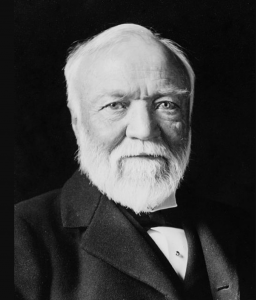The first college in the United States was Harvard University, which opened in 1636. When it was created, only the rich could apply. In order be accepted, one had to be proficient in Latin and Greek while exhibiting exemplary character and coming from a strong background (Beale). But, the number of colleges quickly grew and between 1800 and 1850 “more than 200 degree-granting institutions were created” (Beale). After the boom in numbers, it was unclear who should be admitted and if college was even necessary. in 1901, Andrew Carnegie thought “that college was not only unnecessary, but actually detrimental for the average young man (“Higher Education in the United States”). At that point in our history [1901], only 4% of young people attended college” (Anderburg). College was not something that was an expectation, but instead it was a luxury. However, the post secondary education industry started to boom, but it never defined if college should be something that all students are entitled to. This has resulted in ambiguous admissions system that is vulnerable to implicit bias and questionable practices that favor some groups over others.
Pictured: Andrew Carnegie, a successful businessman who questioned the value of going to college